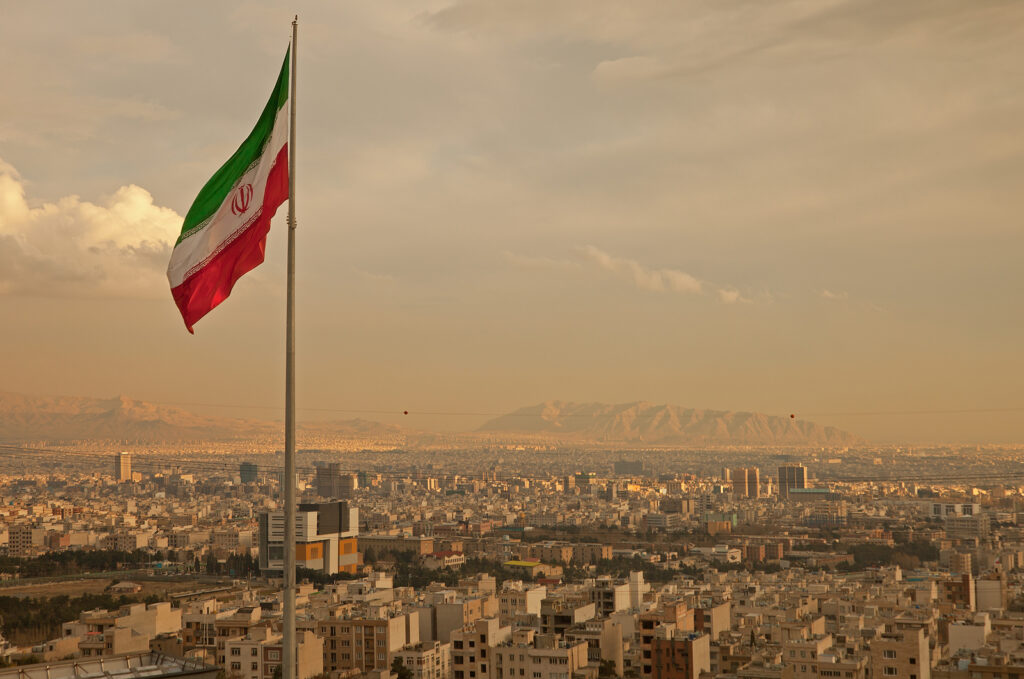As Israel enters tough battle against Hamas in Gaza, it has no-less-difficult wars to win on the global diplomatic field. The bad policy thinking and faulty paradigms of the past still dominate in many capitals around the world.
For Israel and Israelis, the jihadist invasion shattered as many illusions as lives; it wiped-out layers upon layers of conventional wisdom. The shattering is ultimately, albeit tragically, a good thing. The bad policies and false paradigms hopefully will be defiantly replaced by life-affirming policies.
But on the international level, many have not yet assimilated that Israeli defense and diplomatic policies will never be the same. They are stuck in the thinking of the past and are pressuring Israel to revert to the standard formulations and stale ideas that led to the current disaster.
To overcome this, there are many myths that must be busted. Here are ten of them, ten arguments that must be won, ten concepts that must change.
1. Neutrality: Reticence to condemn Hamas amounts to collusion against Israel. Hesitancy to express explicit support for Israel at this time, which also will mean unequivocally backing Israel in the many months ahead of tough fighting to crush Hamas, is tantamount to siding with the enemy.
Neutral and anodyne sentiments about broken hearts, heartfelt feelings, sympathy for “all victims of conflict” and other such mushy musings – even as Israeli Jews have been brutalized by heartless barbarians that next are coming for the West – is profound moral failure and a stab in Israel’s back.
Sympathy for Palestinians is understandable. To some extent, Palestinians are, after all, victims of their own horrible leadership (and to a great extent also are complicit in Hamas crimes – see below). But this is the time for friends of Israel around the world to speak-up loudly and unambiguously in support of Israel, not emote limp feelings of concern or equivocation.
2. Ceasefire: The call heard around the world for a ceasefire is neither reasonable nor right. This call must be rejected. Ceasefire now would be a victory for the radical Islamist attackers and a defeat for Israel. The call for immediate ceasefire is in fact meant to neutralize Israel, to leave it exposed and weakened against the next attacks sure to come from Hamas and Hezbollah and other proxies of the Islamic Republic of Iran.
3. Negotiate and Incentivize: Believe it or not, the same Mideast “experts” who brought us the failed approach to handling Hamas are once again advocating negotiations with Hamas because it supposedly is “rational” and can be “incentivized to prefer stability.” Hamas has an interest in “economic peace,” they tell us; a desire to reach understandings on the release of all hostages; and to rehabilitate civilian Gaza neighborhoods – if only Israel would play ball instead of bombing.
The obtuseness and blindness of these experts is astounding and their shilling for Hamas must be repulsed. They blabber-away as if the October 7 massacres never happened, as if Hamas’ true intentions have not been revealed. No compromise with Hamas is possible or advisable.
Specifically shattered is the “economic peace” hypothesis that postulated prosperity for Palestinians as an antidote to radical Islamic ideology and genocidal education. The millions or even billions of economic development dollars showered by the world on Palestinians in Gaza, and funneled in suitcases into Gaza by Qatar, only strengthened the monster.
Israel did not successfully “shrink the conflict” or “disincentivize violence” by gifting Hamas tens of thousands of work permits in Israel for its populace, or by facilitating the transfer into Gaza of tens of thousands of tons of civilian and humanitarian goods every day, or by selling gas, electricity and water to a Hamas government. Therefore, all funding avenues for Hamas must be cut.
4. Distinction: “Hamas does not represent Palestinians in Gaza.” We have heard this contention from President Biden himself and many other Western leaders, even some Israeli leaders too. Except that broadly speaking Hamas does faithfully reflect the desires and goals of most Palestinians in Gaza, otherwise Hamas would not have been elected by the Palestinians of Gaza and been able to draft tens of thousands of jihadists to its military.
Gaza’s “civilian” population actively abetted Hamas in plotting against Israel, and thousands of “everyday” Palestinians (not the “Nokhba” assault commandos, mostly) carried-out the worst atrocities of the Simchat Torah (October 7) assault. Tens of thousands have participated in riots on border fence going back years (which apparently served as cover for assault planning).
The “uninvolved” danced like dervishes around the trucks that hauled away the abducted men, women, and children of Kibbutz Beeri, crying “death to the Jews” and helping Hamas hide them. “Uninvolved” mothers proclaim they are proud to send their children into battle to turn them into shahids (martyrs). And “uninvolved” teachers teach the children of Gaza that it’s a religious obligation and heroic task to kill Jews. The “uninvolved” have helped Hamas hide its rocket launchers and other weaponry too.
This does not mean that Israel can or should target every Palestinian household in Gaza. Not at all. But it does mean that the soft sentiments meant to prettify a lot of nasty Palestinians; to completely tie Israel’s hands behind its back in wartime; and to weaken Western resolve in backing Israel – are out of whack.
5. War crimes: It is Hamas that is guilty of war crimes, not Israel. In fact, Hamas must be held accountable for triple war crimes. Its barbaric attack on Israeli towns constitutes a war crime. Its use of civilians in Gaza as human shields (along with its expropriation of mosques, schools, and hospitals as bases of military action and weapons storage) is a second, compounded war crime. And its efforts to impede evacuation of the civilian population from the war zone (and in at least one instance, the bombing by Hamas of a civilian evacuation convoy that resulted in the deaths of over 80 individuals), represent a third layer of war crimes.
Add to this several additional war-related offenses like inflating and manipulating casualty counts, stealing relief supplies meant for Palestinian civilians (see below), and more.
6. Palestinian Authority: The suggestion to bring the Palestinian Authority back as ruler of Gaza is both ridiculous and dangerous. No leadership Palestinian group is weaker, is more corrupt, and has less legitimacy among Palestinians than the PA. Abbas and his Fatah party never could or would block the rearmament and rebuilding of Hamas. Moreover, Mahmoud Abbas and his coterie also are no less hostile to Israel than the Hamas gang, although they use less Islamic terminology. So, don’t delude yourself into thinking that the PA is the solution, or that the full-fledged “two-state solution” is smart or feasible with Palestinian leaders of the near-term future.
7. Settlements: Shattered is the misconception that the Palestinian conflict with Israel is about “illegal settlements in the occupied Palestinian territories,” meaning Israeli towns in Gaza or Judea and Samaria. The conflict is about every Jewish “settlement” in the Land of Israel including Kibbutz Beeri, Kfar Aviv, Netiv HaAsara, Kissufim, Sderot, and Kerem Shalom. And Tel Aviv, Beersheba, Haifa, and Jerusalem; and any place that Zionists dare to live in their ancestral homeland.
Time to discard the canard about West Bank settlements being the obstacle to peace. The obstacle to peace is barbaric radical Islam and annihilationist Palestinian nationalism.
8. Iran (and Qatar): Incredulously, Washington is reluctant to call-out Iran for its leadership of the radical Islamic assault on Israel and its material support for Hamas, and there is a significant policy camp in Washington that still hopes for grand deal with Iran after this war to “stabilize” the region. President Obama’s predilection/delusion for strategic partnering with Iran is dug deep into the Biden administration. Few in the administration yet understand the current opportunity (and the absolute need) to cut Iran’s regional heft down to size. This is a strategic and advocacy challenge for Israel.
As for Qatar: This small, opulent emirate in the Gulf has a history of playing both sides in conflicts and getting away with it. It harbors Hamas leaders, funds Hamas, and operates the equally evil Al Jazeera television network which plays an outsize role in fanning radical Islamic and fiercely anti-Western flames across the region.
There should be an American ultimatum to Qatar with two hours warning to expel Hamas leadership, or else troops from the big US airbase in Qatar will raid Ismail Haniyeh’s luxury compound in Doha and capture or kill him – just like it assaulted Osama Bin Laden’s headquarters in Pakistan.
The Israeli national security advisor publicly thanked Qatar last week for its role in trying to have hostages released by Hamas. I think this is mistaken, playing into Qatar’s wicked double-dealing (and probably was said under extreme duress).
9. Humanitarian refuge and relief: Relief for Gazan Palestinians should be the world’s problem, not Israel’s. Egypt, for example, outrageously has sealed its border with Gaza to hundreds of thousands of civilians seeking safety, because Egyptian President Abdel Fattah al-Sisi does not want “to hurt the cause of Palestinian statehood.”
In other words, Sisi is denying Palestinian asylum seekers safety for geopolitical ends. This is a violation of international law and goes against the overwhelming practice of dozens of states in conflicts around the world over the past decade.
For its part, Israel cannot allow Hamas ongoing supply of fuel and electricity during the war, therefore a blockade on Gaza is needed and justified. Limiting the flow of fuels and electricity into Gaza is meant to substantially impair the enemy’s military capabilities, and thus is legal warfare. This is not unlawful “collective punishment” of the civilian population.
Furthermore, to the extent that such tactical means are meant to pressure Hamas to release Israeli hostages, the non-supply of fuels and electricity to the enemy is ethical and further justified under international law.
Note: International law requires only that Israel facilitate the passage of food and medicine to civilians by third parties – if and only if such goods can be reliably delivered without diversion to Hamas and without fear the goods will give Hamas an economic and military boost. Given Hamas’ 16-year exploitation of humanitarian aid and infiltration of human rights and international organizations in Gaza, diversion is not merely a possibility – it is a near certainty. And this has the potential of prolonging the conflict and resulting in greater loss of civilian life.
10. The Day After: Who will rule Gaza once Hamas is annihilated? What is the endgame? I don’t know. This is going to be a long war. Who knows how the war will develop and where it will lead? And as above, this matter is the world’s problem, not just Israel’s because resolution is tied to broader regional battles. So, Israel is exempt from answering this question – certainly now when it must laser-focus only on outright military victory.
Israel is rightfully fixated on its entrance and victory strategy, not on exit strategies and Palestinian rehabilitation. In fact, the demand that Israel answer this question now is a trap, pointedly meant to prevent Israel from doing what needs to be done in Gaza, so it must be rebuffed.
The writer is founding senior fellow of the Jerusalem-based Misgav Institute for National Security & Zionist Strategy, and program coordinator of the Hertog Forum/The Tikvah Fund–Israel. The views expressed here are his own. His diplomatic, defense, political, and Jewish world columns over the past 27 years are at davidmweinberg.com.
Photo copyright: Seamartini








